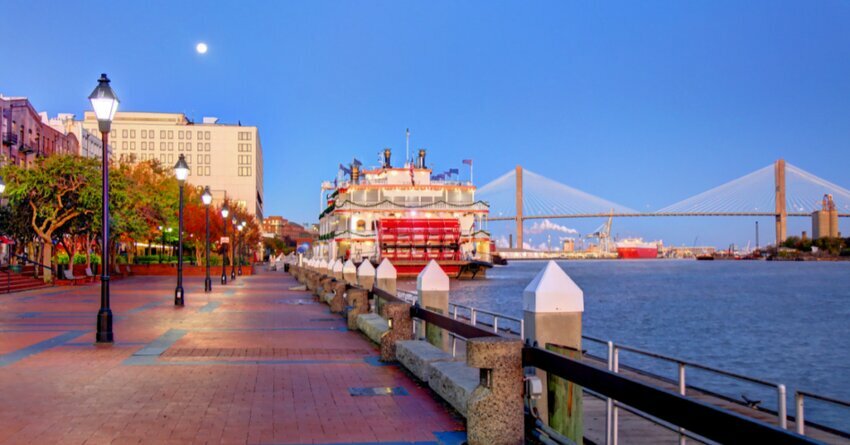 (Credit: Canva Pro)
(Credit: Canva Pro)The city of Savannah is taking a significant step towards reducing its carbon footprint and promoting sustainability. The city announced plans to install solar panels on nineteen of its buildings. This project is expected to significantly reduce the city's carbon emissions while providing energy cost savings.
Savannah is the oldest city in the state of Georgia, and it has a long history of environmental conservation. The city has taken numerous measures in recent years to promote sustainability and reduce its carbon footprint. The installation of solar panels on city buildings is the latest in a series of initiatives aimed at achieving these goals.
The solar panels will be installed on buildings such as the police department, the public works building, and the civic center and are expected to produce approximately 2.5 megawatts of electricity, which is enough to power around 375 homes for a year. Thus, significantly reducing the city's carbon emissions, as well as the city's dependence on fossil fuels.
“So the upfront cost is nothing,” said Clean Energy program manager, Alicia Brown. “Over 25 years we expect all 19 facilities to be about 6 million dollars with the savings being greater than that.”
According to city officials, choosing to embrace environmentally sustainable practices is a wise investment that will yield benefits in the future.
“When we pursued the 100 percent clean energy goal we always dreamed a day like this would come,” says Palumbo. “Not only do these panels pay for themselves, they actually return a net benefit to the taxpayer to the tune of 50,000 per year once we get all of these installed. So that’s a full-time police officer that we can put on the street that pays for itself.”
The installation of solar panels on city buildings is a significant step towards promoting sustainability in Savannah. The city has set ambitious goals for reducing its carbon footprint, and this project is an important part of achieving those goals. With goals to achieve 100% renewable energy consumption for all electricity used within the city by 2035 and by 2050, this goal will expand to encompass all other energy sources.
The installation of solar panels on city buildings is just one of many steps that Savannah is taking to promote sustainability. The city has also implemented a number of other initiatives aimed at reducing its carbon footprint. These include the promotion of public transportation, the development of bike lanes and pedestrian-friendly streets, and the implementation of energy-efficient building codes.
"Keep Savannah Beautiful" is a local initiative aimed at promoting a cleaner and more beautiful environment in the city of Savannah, Georgia. The initiative is focused on engaging the community in efforts to reduce litter, improve recycling rates, and beautify public spaces. Keep Savannah Beautiful partners with local businesses, schools, and community groups to organize clean-up events, provide educational resources, and promote sustainable practices. The initiative is part of a larger national effort called Keep America Beautiful, which aims to inspire and educate people to take action to improve their communities environmental health and sustainability.
In December 2022, the City of Savannah Office of Sustainability & the Athens-Clarke County Unified Government Sustainability Office were chosen as the recipients of the Energy Insecurity Project Implementation award from the Southeast Energy Efficiency Alliance (SEEA) and Southeast Energy Insecurity Project (SEIP) Leadership Forum.